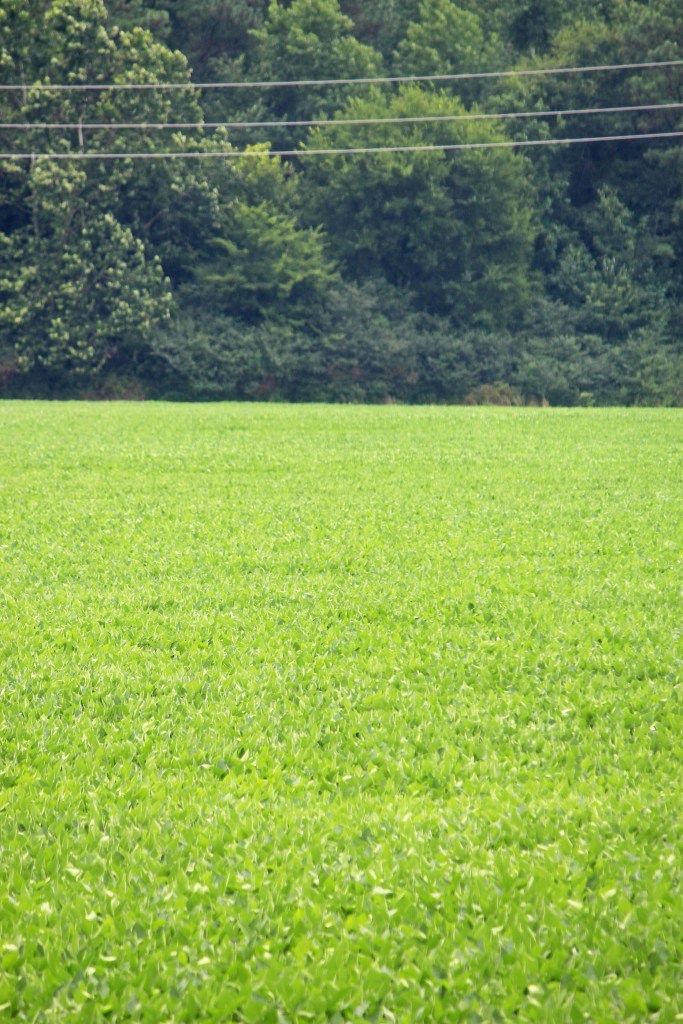TRADE WAR: Ag community concerned by Chinese tariffs
Published 6:45 am Friday, April 6, 2018

- In 2016, the U.S. accounted for $22.8 billion worth of global soybean exports, the most of any country. Its nearest competitor is Brazil, which exported $21 billion.
Elkmont farmer Jesse Hobbs is too busy planting crops to pay much attention to what’s happening in Washington, D.C.
But there was one headline this week that caught his eye — China’s proposed 25-percent tariff on all U.S. soybean exports. Hobbs, who will plant about 1,200 acres of soybeans this year, said he’s fearful to an extent, but he’s also hoping for the best.
Trending
“Would it affect my bottom line? More than likely,” Hobbs said. “China is our No. 1 consumer of soybeans.”
Jimmy Parnell, president of the Alabama Farmers Federation, echoed Hobbs’ sentiments in a statement released this week. He said state farmers are concerned but are expressing optimism negotiations could produce long-term benefits.
“We are communicating with Congress and President Trump’s administration about the effect these tariffs would have on Alabama farmers,” he said. “We encourage them to reach a deal that’s good for all sectors of the U.S. economy.”
How we got here
U.S. import duties on Chinese aluminum and steel were announced last month. In return, China placed tariffs on U.S. pork, tree nuts and other products, which went into effect Monday.
Late Wednesday, China announced plans to levy a 25-percent tariff on $50 billion of additional U.S. goods, including soybeans, corn, beef, frozen orange juice and whiskey. China’s Commerce Ministry said the tariffs would be imposed on 106 products in 14 categories, but the implementation date will depend on when the U.S. government imposes tariffs on Chinese products.
Trending
Parnell said it’s not surprising China is planning to retaliate against agriculture. Farm and food exports are the bright spot in U.S. trade, generating a $20 billion trade surplus with other countries.
Soybeans are a crucial part of the global food chain, particularly as a source of protein in the production of hogs and poultry.
In 2016, the U.S. accounted for $22.8 billion in global soybean exports, the most of any country. Its nearest competitor is Brazil, which exported $21 billion.
Meanwhile, China accounts for the lion’s share of global soybean imports at $34 billion, or two-thirds of the total.
American exports made up about a third of that, or $12.4 billion, making soybeans the United States’ second-most valuable export to China after varieties of airplanes. The importance of China as a market for soybeans has been driven by an explosion in demand for meat as consumers switch from a diet dominated by rice to one where pork, poultry and beef play an important part.
Chinese production of meat from those three animals surged 250 percent from 1986 to 2012 and is projected to increase another 30 percent by the end of the current decade. However, China is unable to produce enough animal feed itself, hence the need to import soybeans from the United States and Brazil.
Erin Beasley, executive vice president of the Alabama Cattlemen’s Association, described China’s targeting of U.S.-produced beef as “unsettling,” but added she was not surprised as it is “an inevitable outcome of any trade war.”
“We believe in trade enforcement, but endless retaliation is not a good path forward for either side,” she said, adding the Trump administration has until May to resolve the issue. “We will continue to communicate this to the federal government in an effort to avoid retaliatory tariffs on American beef products, many of which are produced right here in Alabama.”
Confidence in leadership
When President Donald Trump was on the campaign trail in 2015, he took part in a series of conference calls with reporters. In a question posed by The News Courier, Trump was asked about how he would encourage agricultural growth and ensure farmers are successful, despite more stringent federal regulations.
“We have to get rid of a lot of rules,” he said. “They’re out of whack, and farmers are being killed. They’ve been there hundreds of years, and it’s making it impossible for them to farm. The farmers will love me.”
When Hobbs was asked if Trump has been a friend to the farmers, Hobbs elected to praise Agriculture Secretary Sonny Perdue, a southern farmer who previously served as governor of Georgia.
“I’m comfortable with Mr. Perdue, and I think Trump leans on him a lot,” Hobbs said. “I feel comfortable having him versus what we’ve had in the previous administration.”
— Ian Sheldon, professor and Andersons Chair of Agricultural Marketing, Trade and Policy at Ohio State University, contributed to this report via The Conversation.





